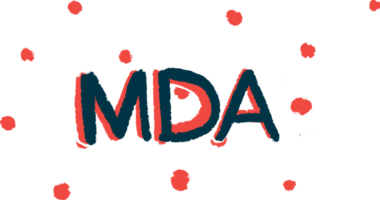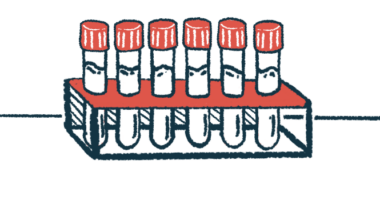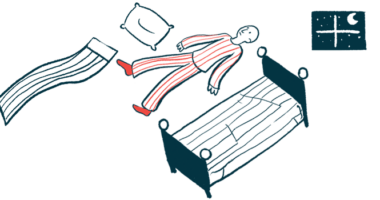 Discussion
Discussion
What are fasciculations in ALS?
Many people have fasciculations, called muscle twitching, at some point. Often, it’s caused by drinking too much coffee, lack of sleep, or a trapped nerve. However, repeated episodes of fasciculations could be a sign of a neuromuscular disorder such as amyotrophic lateral sclerosis (ALS).
In a person living with ALS, fasciculations are caused by abnormal activity generated by the body’s motor neuron system. These spontaneous contractions often begin near the center of the body and move further out along the limbs as the disease progresses.
What are fasciculations?
Fasciculations in ALS happen when motor neurons become excited and spontaneously release electrical impulses, causing involuntary muscle twitches.
Most people have fasciculations at some point, such as twitching muscles in an eyelid or calf. If this is ongoing and happens while the muscle is at rest, it could be benign fasciculation syndrome (BFS), a harmless type of muscle twitching, as its name implies.
A doctor will not diagnose ALS solely based on muscle twitching. There would need to be signs of progressive deterioration and muscle weakness, along with other ALS symptoms.
Two noninvasive methods usually used to measure fasciculations are:
- high-density surface electromyography, which can measure electrical muscle activity
- muscle ultrasonography, which can assess muscle fiber contraction.
Differences between benign fasciculation syndrome and ALS
Because fasciculations could be a sign of developing ALS, doctors want to determine if the muscle twitches are a motor neuron problem or the result of benign fasciculation syndrome (BFS).
BFS can result from stress, strenuous exercise, some medications, fatigue, lack of sleep, drinking alcohol or caffeine, or a viral infection.
BFS is diagnosed when the twitches are the main symptom and there isn’t any sign of a nerve or muscle disorder or another medical condition. BFS doesn’t damage the muscles.
Another difference between symptoms of ALS and BFS is the location and strength of the fasciculations. People with BFS have lower-grade twitches toward the ends of the limbs, whereas ALS fasciculations tend to occur proximally, or near the trunk, and to be of higher intensity.
Compared to muscle twitches in BFS, a study showed that the frequency of fasciculations of the biceps of people with ALS were 10 times greater in strong muscles and 40 times greater in weak muscles. In the calf muscles, people with ALS experience twitching at a rate of five times greater than people with BFS.
Signs and symptoms of fasciculations
ALS muscle twitches are often associated with a person’s dominant hand, or the side of the body where other symptoms of the disease were first noticed.
There is some evidence that fasciculation intensity may be connected to disease progression, although more studies are needed to verify that.
Treating fasciculations
Fasciculations may cause muscle pain in a person with ALS and affect their everyday life.
Although there is no specific treatment for ALS fasciculations, muscle relaxants or nerve blockers, as well as physical therapy or occupational therapy, may offer some relief.
Always consult with a doctor before starting any medication or therapy.
ALS News Today is strictly a news and information website about the disease. It does not provide medical advice, diagnosis, or treatment. This content is not intended to be a substitute for professional medical advice, diagnosis, or treatment. Always seek the advice of your physician or other qualified health provider with any questions you may have regarding a medical condition. Never disregard professional medical advice or delay in seeking it because of something you have read on this website.
Recent Posts
- Guest Voice: ALS hasn’t stopped this go-to guy from showing up as ‘Dad’
- HEALEY ALS platform trial launches new arm testing oral therapy NUZ-001
- Ahead of this year’s MDA Conference, association’s CEO speaks of ‘hope’
- Higher blood lactate levels tied to survival, weight changes in ALS
- AB Science adds new biomarker to Phase 3 masitinib ALS clinical trial
Related articles
-
 Discussion
Discussion
 Fact-checked by
Fact-checked by 



